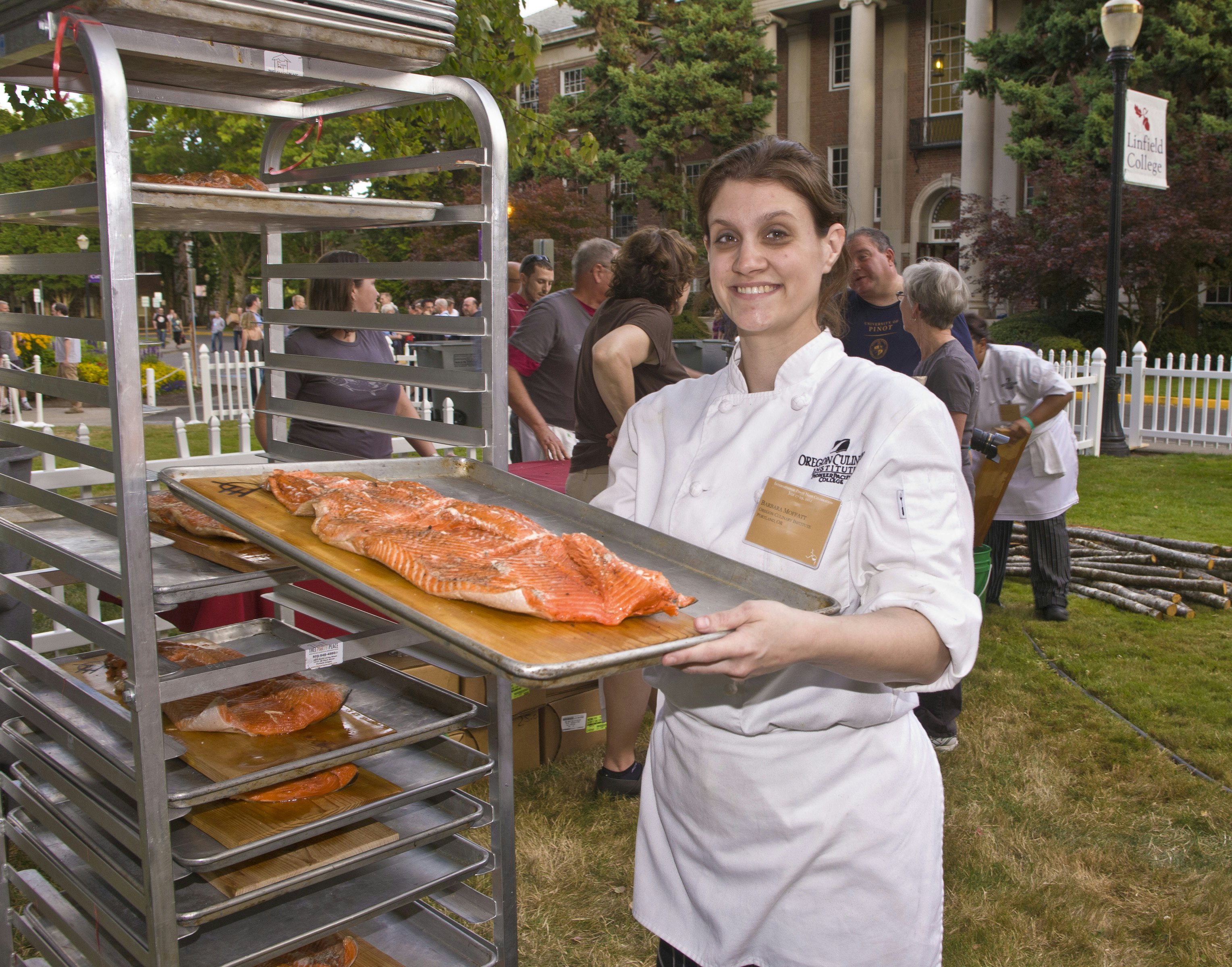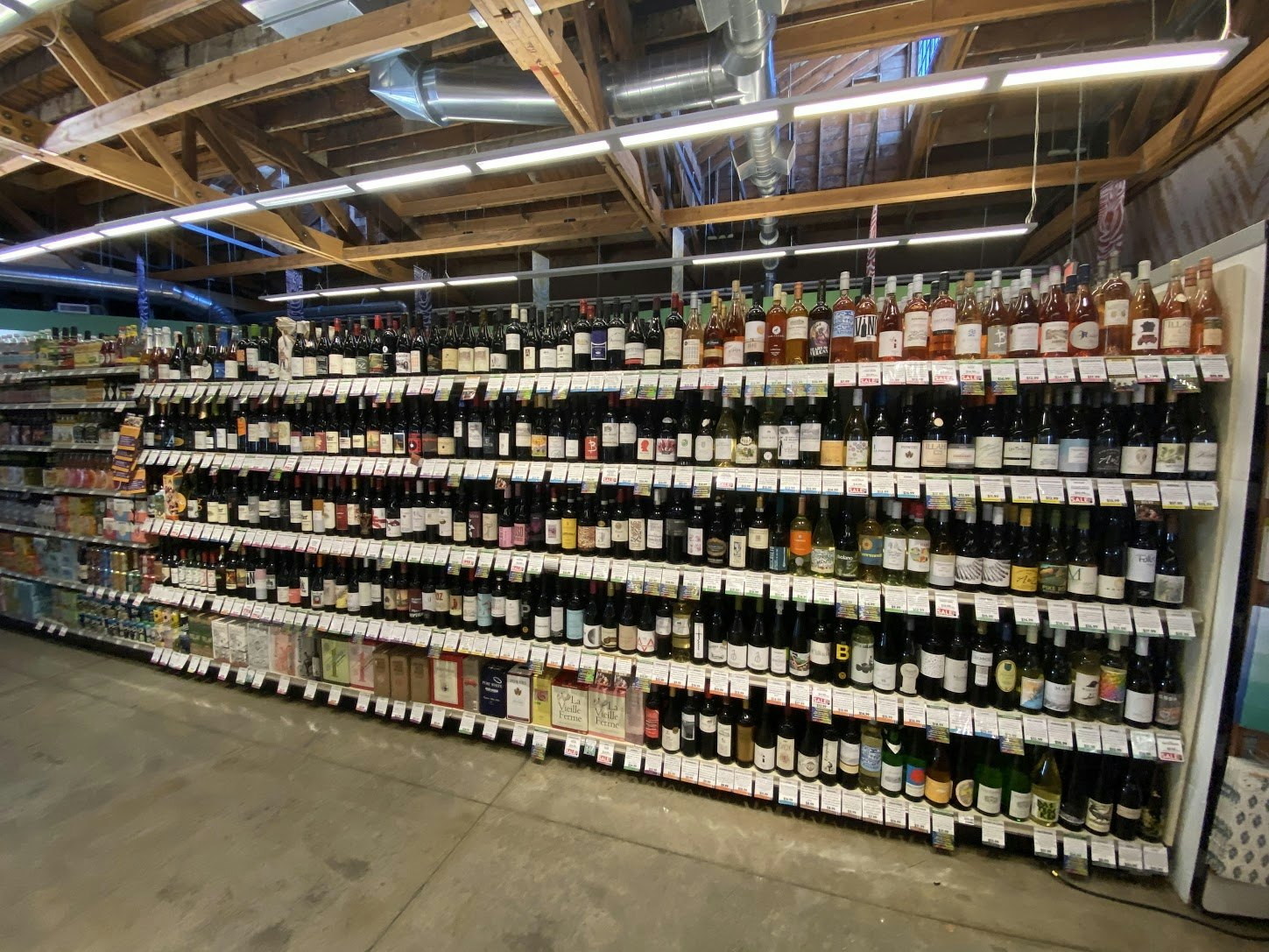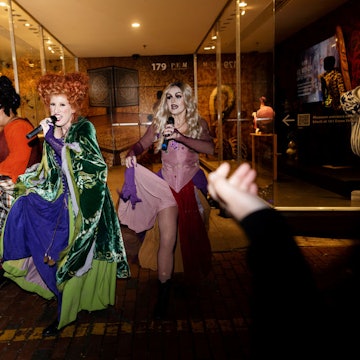
Drink to the future with these sustainable wineries in the Pacific Northwest

Dec 2, 2019 • 5 min read

Salmon populations have been stressed by a number of factors, from dams in rivers to agricultural runoff © David Gregg / Lonely Planet
Salmon and wine are perfect pairings when it comes to what's on your dinner table, but sadly, growing grapes and sustaining the salmon population aren't always so compatible.
Pesticides, erosion, and a lack of biodiversity in vineyards have a negative impact on our land and waterways and affect not only our dwindling salmon population, but other parts of our fragile ecosystems such as soil, plant, and animal life.
Fortunately, winemakers and vineyard managers in the Pacific Northwest, a place famous for its love of both the great outdoors and fantastic vintages, are leading the charge in implementing sustainable practices to protect these natural resources.

Going LIVE in the Pacific Northwest
For Casey McClellan, founder and winemaker of Seven Hills Winery in Washington, being a good steward of the land is very personal. His family has been farming in Washington since the 1880s and he takes his role of land custodian seriously.
"Sustainable practices are good for the land and bring additional focus on, and consideration of, how we grow our grapes," he says. “This is why we took the step of becoming one of the very first LIVE (Low Input Viticulture and Enology) and Salmon Safe certified vineyards in the Walla Walla Valley AVA.”
The LIVE certification program grew out of the unique viticulture of the Pacific Northwest, the 1995 product of several Willamette Valley vineyards banding together to adhere to "a values-based system of agricultural production whose goal is multi-generational sustainability.
By 2006 it had expanded to include Washington winemaking operations, too, and today there are 323 vineyards that are LIVE members throughout Oregon, Washington, and Idaho. And though LIVE is a regional project, it's backed by inspection and standards verified by globally recognized and accredited third parties like the International Organization for Biological Control (IOBC).
Related article: Walla Walla wine country is one of the best kept secrets of the Pacific Northwest
Meanwhile, Salmon Safe Certification has been possible since 1997, and has been adopted not only by vineyards and winemakers, but also brewers, farmers, and even entities like the University of Washington and the city of Portland. Three hundred and fifty vineyards throughout Oregon, Washington, and British Columbia are certified Salmon Safe, spanning watersheds that spill into the Columbia, Willamette, and Rogue rivers, amongst others.
Attaining these certifications is no easy feat.
“The programs require practices that enhance biodiversity habitat, minimize chemical use, conserve water and soil health, and help improve salmon habitat through the protection of watercourses," McClellan says. "For instance, we must set aside 5% of our land for native plants that increase animal and plant biodiversity on the farm.”

The cost of sustainable farming
Kelli Gregory, vineyard manager for Adelsheim Vineyards in Oregon, another Salmon Safe-certified farm, was awarded the LIVE Excellence In Sustainability Award in 2019. Gregory says in many cases, farming sustainably can be more expensive.
“Just not spraying herbicides alone adds several hundred dollars per acre to my annual farming costs. Farming with an approach to sustainability by default requires more hand labor. Labor is not only expensive but it is in high demand,” she says.
But Gregory believes there is an upside to all this hard work.
“Farming with respect to the land requires more attention to detail, it requires being outside in your vineyard often and it requires being in tune with every little micro-zone that exists throughout your property, and there are plenty of them," she says. "I think this alone results in better-managed vineyards and higher quality grapes. You cannot manage a vineyard from an office and expect excellence.”

McClellan agrees that sustainable practices can result in better fruit.
“Putting fewer synthetic chemicals into our vineyards and grapes is better for us," he says. "Indirectly, being limited in this way has us paying a little more attention day today, and when we are doing that, we tend to make decisions that optimize taste and flavor in the resulting wine.
"For instance, giving the vines just enough water to grow and ripen fruit, rather than putting too much on (which is wasteful) produces more concentrated flavors in the wine.”
Salmon-Safe and LIVE certified wines have special logos on the bottles to identify which vineyards participate in these rigorous certification programs.
“A key point here is that third-party certified programs are necessary to ensure consistent adherence to the required practices,” McClellan says.
Consumers who want to support the wineries who have committed the time and resources it takes to implement and maintain sustainable practices need only look for them or make a habit of asking for them at the grocery stores and restaurants they frequent.

The pleasure of sustainable wine
Steve Byers, wine and beer director for Green Zebra grocery stores in Portland, OR, is passionate about stocking and promoting sustainable wines. He admits sometimes such wines are a little bit more expensive but thinks it ‘s worth paying a little bit more to support sustainable vineyards.
“I would like consumers to know that it's much more difficult and risky to produce wines in a sustainable way and sometimes those costs get passed on to us," he says. "But at the end of the day, you have winemakers of the highest integrity making wines with the best fruit.
"The result is most often an expressive wine that shows a true sense of place because the soil isn't censored by contaminants or by over-irrigation, which washes away the minerals and earth that can give a wine so much personality. The fact that you can enjoy something as fun as wine while supporting farmers and winemakers that are excellent stewards of their environment brings an incredible amount of value to your wine glass.”

Impact of supporting sustainable farms
When it comes down to it, it’s all about intent. Not just for the growers, but for consumers as well. Sustainability is something everyone can take part in by simply paying attention to what we’re pouring into our glass, or which tasting rooms you include on your wine tour itinerary. Fortunately, some of the best-beloved and most scenic wineries in the Pacific Northwest are on board, like the Willamette Valley's Argyle Winery and Stoller to Washington's Chateau St. Michelle and 14 Hands on the Yakima River.
Perhaps McClellan says its best, “leave the land in better condition than you found it, for the use and enjoyment of the next generation.”
Cheers to that.






















